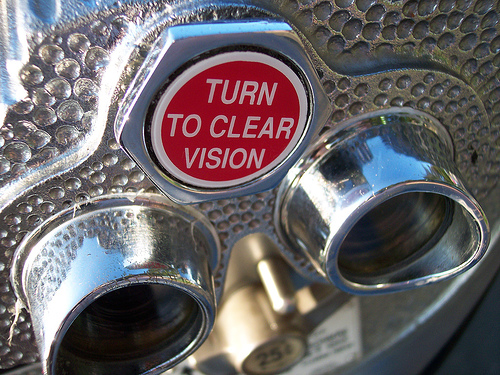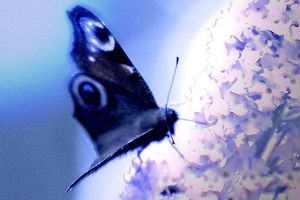Simple Acts of Calm: Softening the Senses
Our senses are meant for acquiring knowledge from the outside world. That knowledge is then filtered by the discriminative powers of our intelligence. But when our senses are constantly receiving incoming information without a break we get mental indigestion due to the mind being too full to digest and process information healthily.
Shifting Focus: Making Choices in Where You Spend Your Energy
 Have you ever asked yourself why it is that some people seem able to go with the flow and get things done no matter what the weather brings, while others get stressed and stuck? To put it another way: Why are some of us proactive and others reactive?
Have you ever asked yourself why it is that some people seem able to go with the flow and get things done no matter what the weather brings, while others get stressed and stuck? To put it another way: Why are some of us proactive and others reactive?
The truth is that though we may be inclined to react rather than take practical action in the face of adversity, these qualities are not set in stone, they are tendencies and such things can be changed.
What Chronic Illness Taught Me About Mindfulness
 When you're living with chronic illness you can't multitask, in fact sometimes you can't even complete the simplest task like getting washed and dressed without breaking things down into tiny bite sized chunks.
When you're living with chronic illness you can't multitask, in fact sometimes you can't even complete the simplest task like getting washed and dressed without breaking things down into tiny bite sized chunks.
You might think that getting dressed is one task. Not so for those struggling with illness. The challenge of illness breaks down getting dressed into a series of small triumphs, one sock at a time.
With such a reduced capacity for activity, moment by moment awareness facilitates the understanding of accomplishment. No matter how small the achievement, a sense of inner acknowledgement can be the difference between getting by with grace and sinking into the realms of hopelessness.
Lowering the Bar
All living creatures experience pleasure as a result of completing simple tasks. And that pleasure and sense of completion is what motivates them to do more. If illness means your ability to complete tasks is reduced, it would be an act of self-kindness to lower your expectations accordingly.
Do Your Genes Really Tell the Future of Your Health?

Scientific American Magazine recently published an article called: Can Lifestyle Changes Bring out the Best in Genes? Quote: "recent research shows that diet and exercise may change how our genes behave". The research may be new but the revelation isn't. This information has been known for thousands of years contained within the teachings of Ayurveda, the ancient science of life.
The article begins by saying that "a new pilot study shows that eating right, exercising and reducing stress may help keep chronic illnesses at bay by switching on beneficial genes, which can include tumour fighters, and by silencing genes which can trigger malignancies and other ills". Dene Ornish the founder and president of The Preventative Medical Research Institute is quoted as saying: "we've found that simple changes have a powerful impact on gene expression" and he says that while genes may indicate our predisposition, they are not our medical fate. This is exactly inline with Ayurvedic Science.
Nature & Nurture
Medical research has been pointing the finger at our genes for years, yet most diseases and disorders in our bodies have direct cause and those causes are largely under our control. Genes may play a role in disease tendency, but the way we live, eat, sleep and express activity has a great influence over whether or not that disease tendency is triggered into manifestation of illness.
We each have our own strengths and weaknesses, and knowing what they are gives us invaluable clues in keeping healthy and reducing the likelihood of developing common concerns like high blood pressure, diabetes, heart disease and some cancers.
